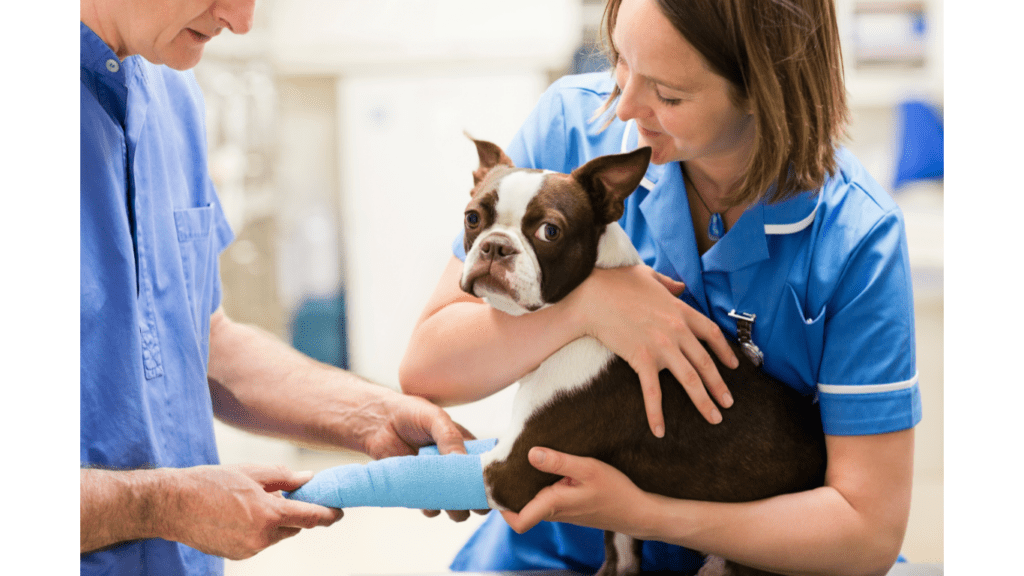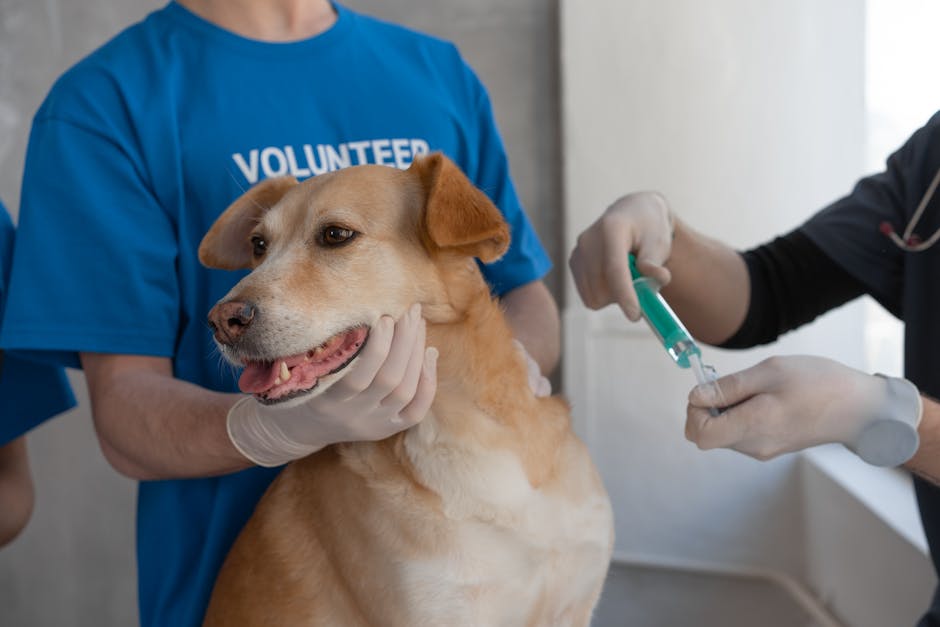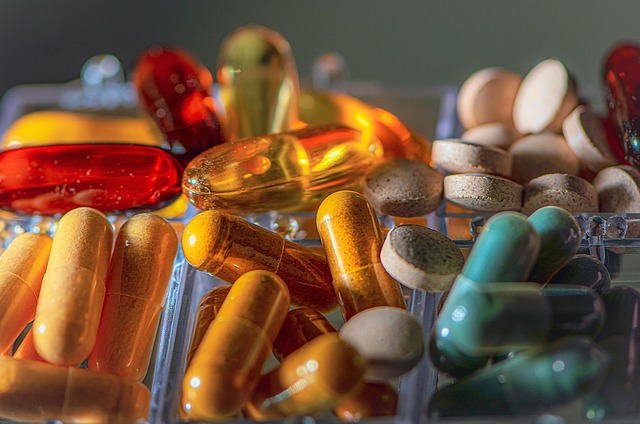Understanding the Role of Vaccines in Pet Health
The Importance of Vaccines in Preventive Pet Care
- Vaccines play a crucial role in maintaining the health and well-being of our pets. As a responsible pet owner, ensuring that your furry companions receive the necessary vaccinations is essential. Vaccinations help prevent various diseases that can be harmful or even fatal to pets. By staying up to date with vaccination schedules recommended by veterinarians, we can protect our pets from serious illnesses and contribute to overall community health by reducing the spread of infectious diseases among animals.
Types of Vaccines: Core vs. Non-Core
- When it comes to pet vaccines, it’s important to understand the distinction between core and non-core vaccines. Core vaccines are essential for all pets based on the risk of exposure, the severity of the disease, and its transmissibility to humans. These vaccines protect against diseases that pose a significant threat to pets and can be easily transmitted. On the other hand, non-core vaccines are recommended based on a pet’s lifestyle, environment, and risk of exposure to certain diseases. Consulting with a veterinarian to determine the appropriate vaccination protocol tailored to your pet’s specific needs is crucial for maintaining their health and well-being.
Establishing a Vaccine Schedule for Your Pet
Early Life Vaccination: Puppies and Kittens
When it comes to early life vaccination for puppies and kittens, it’s crucial to start on the right paw. Vaccinations play a vital role in protecting young pets from various diseases as their immune systems are still developing. Generally, the initial vaccination series begins when pets are around six to eight weeks old, with booster shots given every three to four weeks until they are about four months old. Common core vaccines for puppies include those for distemper, parvovirus, and adenovirus in dogs, and for panleukopenia, calicivirus, and rhinotracheitis in cats. These vaccines are vital in safeguarding your furry friends from life-threatening illnesses.
Adult Pet Vaccinations: Boosters and Updates
As our pets grow, their vaccination needs evolve too. Adult pet vaccinations focus on maintaining immunity to diseases through booster shots and updates. Core vaccines should be boosted regularly to ensure continued protection. Veterinarians may recommend additional non-core vaccines based on factors such as lifestyle and geographical location. For example, the rabies vaccine is often mandatory for dogs and cats, regardless of their lifestyle. Regular veterinary check-ups are essential for keeping track of your pet’s vaccination status and ensuring they receive timely updates to their vaccination schedule. By staying vigilant and adhering to a tailored vaccination protocol, you’re effectively safeguarding your pet’s health and well-being.
Other Preventive Care Measures
Parasite Prevention and Control
- When it comes to preventive pet care, ensuring parasite prevention and control is crucial. Parasites like fleas, ticks, and worms can not only make your pet uncomfortable but also pose serious health risks. I recommend using vet-approved preventative treatments regularly to protect your furry friend from these pesky intruders. Regularly checking your pet for any signs of parasites and promptly treating any infestations is essential for their well-being.
Dental Health and Regular Check-ups
- Dental health plays a significant role in your pet’s overall well-being. Just like us, pets need regular dental care to prevent dental issues that can lead to more severe health problems. Incorporating dental check-ups and cleanings into your pet’s routine is essential for maintaining their oral hygiene. Remember, good dental health can contribute to your pet’s overall health and happiness.
Nutrition and Weight Management
- Proper nutrition and weight management are key aspects of preventive care for pets. A well-balanced diet tailored to your pet’s specific needs is vital for their health and longevity. I suggest discussing your pet’s dietary requirements with your veterinarian to ensure they are getting the right nutrients in the right amounts. Additionally, managing your pet’s weight through portion control and regular exercise can help prevent obesity-related health issues and promote a healthy lifestyle for your furry companion.
The Intersection of Public Health and Pet Vaccination

1. Zoonotic Diseases and Community Health
When discussing pet vaccinations, it’s essential to consider zoonotic diseases, which are infections that can be transmitted from animals to humans. By vaccinating our pets against these diseases, we not only protect their health but also contribute to safeguarding public health. Diseases such as rabies and leptospirosis are examples of zoonotic diseases that can pose significant risks to both pets and humans. Vaccinating our pets against these diseases helps create a barrier against the transmission of such illnesses, promoting a safer environment for both animals and the community.
2. Herd Immunity: Protecting Pets and People
Herd immunity, a concept widely recognized in public health, is also crucial in the context of pet vaccination. By ensuring a high percentage of pets in a community are vaccinated against contagious diseases, we establish herd immunity. This collective immunity not only protects vaccinated pets but also safeguards unvaccinated or immunocompromised animals within the community. Additionally, herd immunity plays a vital role in preventing the spread of diseases from pets to humans, further highlighting the interconnectedness of pet health and public health. Vaccinating our pets not only enhances their well-being but also contributes to a healthier and safer environment for all.
Navigating Vaccine Misconceptions and Concerns
Addressing Common Myths about Pet Vaccines
I’ve come across various misconceptions about pet vaccines during my years in the veterinary field. One common myth is that vaccines can cause the very disease they are supposed to prevent. It’s essential to clarify that vaccines contain either inactivated pathogens or components of the pathogen that cannot cause the illness. They stimulate the immune system to build protection without causing the disease.
Another misconception is that indoor pets don’t need vaccines. While indoor pets are less exposed to certain diseases, they still require vaccinations. Some pathogens can be carried indoors by humans or other pets. Vaccinations not only protect the individual pet but also contribute to community immunity.
Understanding Vaccine Side Effects and Risks
When it comes to pet vaccinations, understanding potential side effects and risks is crucial. Just like with any medical intervention, vaccines can have side effects, but they are generally mild and short-lived. Common side effects may include lethargy, mild fever, or localized swelling at the injection site.
Serious side effects from vaccines are rare but can include allergic reactions. That’s why it’s vital to monitor your pet after vaccination and contact your veterinarian immediately if you notice any concerning symptoms. Vaccines undergo rigorous testing for safety and efficacy before approval for use in pets, ensuring that the benefits far outweigh the risks.
How to Monitor Your Pet’s Health Post-Vaccination
Recognizing Adverse Reactions
After vaccinating my pet, it’s crucial to be vigilant for any adverse reactions. While rare, some pets may experience mild side effects such as lethargy, mild fever, or soreness at the injection site. These symptoms usually resolve on their own within a day or two. However, if my pet displays severe reactions like difficulty breathing, facial swelling, or persistent vomiting, I need to contact my veterinarian immediately. Monitoring my pet’s behavior and overall well-being in the hours following vaccination can help me catch any concerning signs early.
Routine Health and Wellness Checks
Following vaccination, incorporating regular health and wellness checks into my pet’s routine is essential. I make sure to observe my pet’s eating habits, water intake, urination, and bowel movements. Any changes in these patterns could indicate an underlying health issue that needs attention. Additionally, I pay attention to my pet’s energy levels, coat condition, and overall demeanor. If I notice any unusual behavior or physical changes, I promptly schedule a check-up with my veterinarian to ensure my pet’s continued well-being. Regular monitoring and preventive care contribute to maintaining my pet’s health in the long run.


